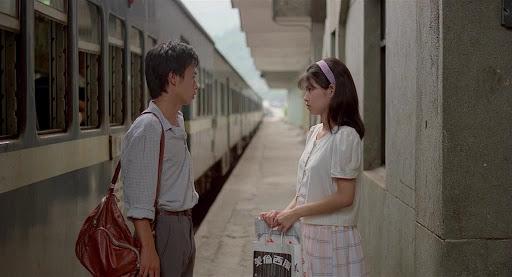As we continue to engage with art remotely, LACMA’s Assistant Curator for Film, Adam Piron will recommend a biweekly selection of new and classic films that provide a distilled focus on filmmakers, performers, and genres available to stream from home. Film has an important place at LACMA and we believe in its role as a point of connection, education, and comfort for our audiences and members.
Globally, we’re collectively experiencing a moment that increasingly demands for us to shift our attention, to adjust to a very different pace, and to deal with rapid changes in our lives and society. As we practice self-isolation, more and more of us are streaming films at home by ourselves, with loved ones, and with each other online. This also presents an opportunity to discover and explore new works, artists, and genres that can help frame and enrich this time of reflection and great uncertainty. As an artist whose work primarily focuses on the humanity and nuances of weathering great societal changes, there is no better filmmaker to explore in these times than Hou Hsiao-hsien.
The early films of director Hou Hsiao-hsien enjoy a special place within Taiwanese cinema, not dissimilar to Italian Neorealism or the French New Wave. His films often demand multiple viewings and patience in order to adjust to his unique pace and artistic voice. Once committed to his singular approach to time and space, his work delivers a rare form of cinematic rapture.
In addition to being one of Taiwan’s finest filmmakers, Hou is also widely regarded as a master of modern cinema. His rise came about as a result of major changes within Taiwanese film in the early 1980s, which sought to replenish its industry by supporting young directors such as Edward Yang, Tsai Ming-liang, Ang Lee, and himself, among many others. This movement came to be known as New Taiwan Cinema. The work of these filmmakers marked a stylistic shift away from romance and wuxia action films, and reoriented a focus toward realism and the struggles within Taiwan’s urbanization and unique cultural identity. This survey of Hou Hsiao-hsien’s early work as both a writer and director explores the aforementioned themes and provides a glimpse at the formation of a singular cinematic style.
Recommended Viewing:
Growing Up (dir. Chen Kun-hou, writer Hou Hsiao-hsien, 1983)
The Sandwich Man (dir. Hou Hsiao-hsien, Wan Jen, Tseng Chuang-hsiang, 1983)
The Time to Live and the Time to Die (dir. Hou Hsiao-hsien, 1985)
Dust in the Wind (dir. Hou Hsiao-hsien, 1986)



